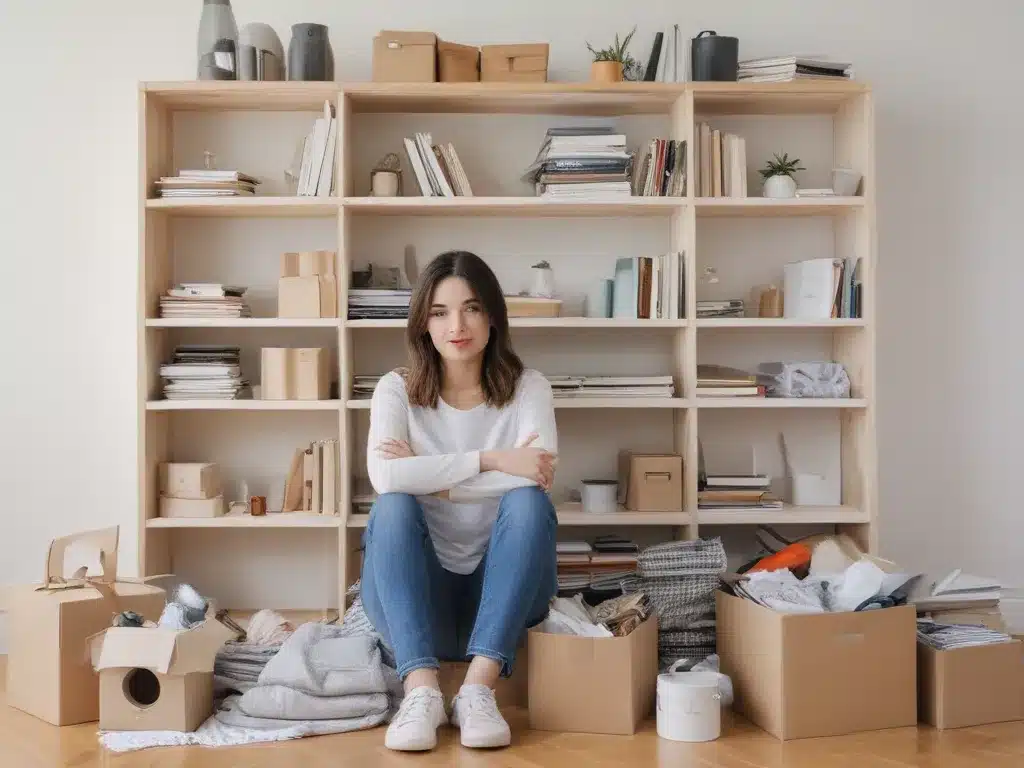Introduction
Clutter – is a state of disorderly accumulation of objects that creates a chaotic and disorganized environment. Decluttering is the process of removing or organizing items that are no longer needed or used. This activity has become increasingly popular in recent years, not only for its practical benefits but also for its positive impact on mental health.
Decluttering – can have a profound effect on our well-being by reducing stress, improving focus, and promoting a sense of control and order in our lives. In this comprehensive article, I will explore the connection between decluttering and mental health, provide practical tips and strategies for decluttering, and share real-life examples and success stories.
The Mental Health Benefits of Decluttering
Clutter – can be overwhelming and contribute to feelings of anxiety, depression, and overwhelm. When our living or working spaces are cluttered, it can be difficult to focus, relax, and find a sense of calm. Decluttering, on the other hand, can have a transformative effect on our mental well-being.
Reduced Stress and Anxiety
Clutter – creates visual chaos, which can trigger stress and anxiety. Decluttering helps eliminate this chaos, creating a more peaceful and calming environment. This reduction in environmental stressors can have a direct impact on our overall stress levels and mental health.
Improved Focus and Productivity
A cluttered space – can be distracting and make it difficult to concentrate on tasks at hand. Decluttering helps create a more organized and streamlined environment, which can improve focus and productivity. This, in turn, can lead to a sense of accomplishment and improved self-esteem.
Increased Sense of Control
Clutter – can make us feel out of control and overwhelmed. Decluttering is an active process that allows us to take charge of our surroundings. By making conscious decisions about what to keep and what to let go, we regain a sense of control over our lives, which can positively impact our mental health.
Enhanced Emotional Well-being
Decluttering – can be a therapeutic process, allowing us to let go of emotional attachments to physical objects. This process of letting go can be liberating and help us move forward, leaving behind negative emotions or memories associated with certain items.
Practical Tips for Decluttering
While the benefits of decluttering are clear, the process itself can be challenging. Here are some practical tips to help you get started and stay motivated:
Start Small and Celebrate Milestones
Decluttering – can be overwhelming if you try to tackle too much at once. Start small, focusing on one area or room at a time. Set achievable goals and celebrate each milestone along the way. This will help you stay motivated and build momentum.
Ask Yourself the Right Questions
When decluttering, ask yourself questions like “Do I need this item?” or “Does this item bring me joy?” These questions will help you separate the essentials from the clutter and make decisions about what to keep or discard.
Create a System for Decision-making
Develop a system for sorting items, such as using boxes or bins labeled “keep,” “donate,” or “discard.” This will help you stay organized and make the decluttering process more efficient.
Let Go of Sentimental Items with Care
Sentimental items – can be the most challenging to let go of. Approach these items with care and compassion. Consider keeping a few meaningful items and letting go of the rest. You can also explore creative ways to preserve memories, such as digitizing photos or creating a memory box.
Involve Family or Friends
Decluttering – can be an emotional journey. Involve family or friends who can provide support and encouragement. They may also offer a fresh perspective on what items to keep or discard.
Maintain a Clutter-free Lifestyle
Decluttering – is an ongoing process. Once you’ve decluttered, implement strategies to maintain a clutter-free lifestyle. This may involve regularly purging items, being mindful of new purchases, and establishing organization systems that work for you.
Real-life Examples and Success Stories
Decluttering has transformed the lives of countless individuals, helping them reclaim their living spaces and improve their mental well-being. Here are a few real-life examples and success stories:
Sarah’s Decluttering Journey
Sarah – struggled with depression and found herself overwhelmed by the clutter in her home. After decluttering, she reported feeling lighter, more energetic, and better able to manage her depression. She now maintains a minimalist lifestyle and advocates for the mental health benefits of decluttering.
The Minimalists: A Decluttering Movement
Joshua Fields Millburn and Ryan Nicodemus, known as “The Minimalists,” have built a popular movement around decluttering and minimalist living. Their story of letting go of excess possessions and embracing a simpler life has inspired many to declutter and prioritize their mental well-being.
Marie Kondo: The Life-Changing Magic of Tidying Up
Marie Kondo – is a Japanese organizing consultant and author of the best-selling book “The Life-Changing Magic of Tidying Up.” Her KonMari method encourages individuals to only keep items that “spark joy” and has helped countless people declutter and transform their living spaces.
These examples demonstrate the profound impact decluttering can have on individuals’ mental health and overall well-being.
Conclusion
Decluttering is more than just a practical exercise in organization; it’s a powerful tool for improving mental health. By reducing stress, improving focus, and promoting a sense of control and emotional well-being, decluttering can have a transformative effect on our lives.
Whether you’re struggling with anxiety, depression, or simply feeling overwhelmed by the chaos around you, decluttering can be a game-changer. Embrace the process, take it one step at a time, and enjoy the mental clarity and peace that comes with a clutter-free environment.
Remember, decluttering is an ongoing journey, but the benefits to your mental health make it a worthwhile endeavor. Start today, and experience the life-changing magic of decluttering for better mental health.







